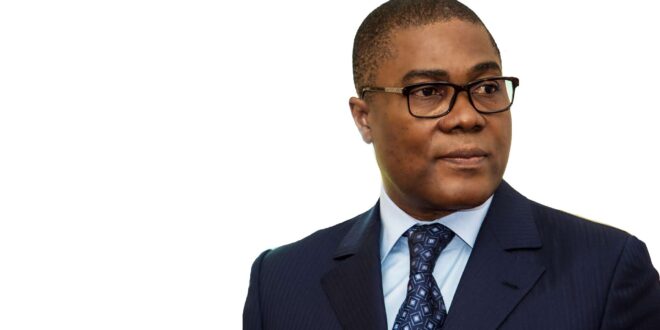
Benin’s political landscape shifted dramatically this week as key figures from the once-influential Olivier Boko movement announced their decision to join the ruling Progressive Union for Renewal (UPR), raising questions about the future — and possible end — of one of the country’s most talked-about political forces.
The announcement was made on Tuesday, 7 October 2025, at the UPR’s annex headquarters in Cotonou.
The “Cadre de concertation des mouvements Olivier Boko,” a coalition of groups once loyal to businessman and political figure Olivier Boko, formally declared their allegiance to the party led by Professor Joseph Djogbénou.
Their decision follows months of internal turmoil within the “OB” camp.
Since the conviction of Olivier Boko — a former close ally of President Patrice Talon — and Oswald Homéky, the movement has been plagued by divisions and weakening influence.
At an extraordinary general assembly held in Cotonou on 2 and 3 May 2025, several regional coordinators announced the dissolution of the national executive, expelled prominent figure Jean-Eudes Mitokpè, and renamed the group from “Objectif Bénin 2026” to “Nouvelle Dynamique pour le Progrès” (NDP).
However, this move was immediately contested. The national bureau loyal to Mitokpè rejected the changes outright, denouncing them as “manoeuvres of political destabilisation orchestrated from within.”
In a statement, the faction insisted that “Jean-Eudes Mitokpè remains the legitimate national coordinator of OB26” and dismissed the new group as a “puppet movement” born from an illegitimate process.
Explaining the shift in allegiance, Arsène Fangninou, spokesperson for the Cadre de concertation, made the group’s realignment clear: “We have, from afar, proposed Mr. Olivier Boko, but God has disposed Mr. Romuald Wadagni to pursue the efforts of the dynamic of continuity.”
This declaration was widely interpreted as a public show of loyalty to President Talon and his political project. Far from a simple merger, the move represents a calculated repositioning by former Boko loyalists seeking relevance within the ruling establishment after their leader’s fall from grace.
Yet, despite the defections, questions remain about the ultimate fate of the “OB” movement.
While many of its visible structures have dissolved or been absorbed by the UPR, its networks, loyalties, and ideas may still linger.
Jean-Eudes Mitokpè continues to present himself as the “legitimate and uncontested president of OB26,” relying on his unwavering commitment and consistent political stance.
Whether he can sustain that claim amid the exodus of key allies is uncertain.
For now, however, the once-powerful “OB” brand appears to be fading, its remnants overshadowed by the towering influence of the Progressive Union for Renewal. In Beninese politics, though, the dead are rarely ever truly gone.



